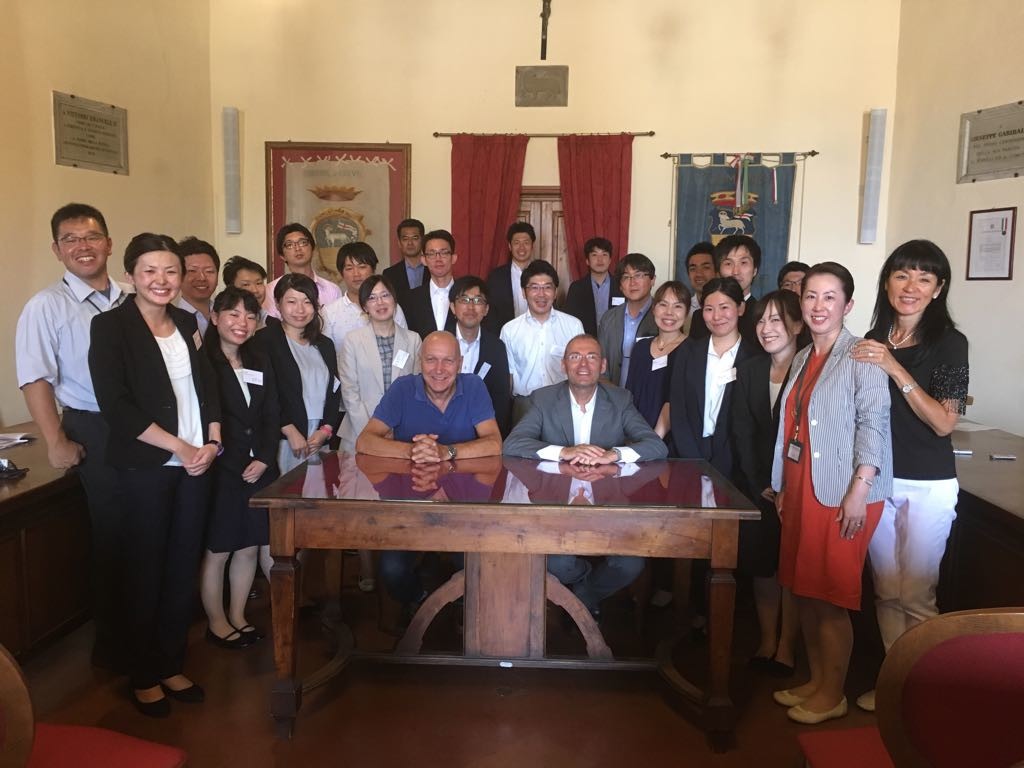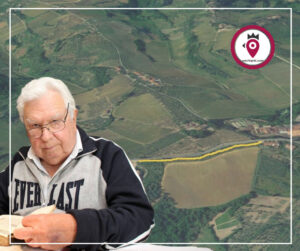Articolo disponibile anche in: Italian
The Japanese appreciate the slow living philosophy, the lifestyle of the Gallo Nero (Black Rooster), iconic symbol of the Chianti Classico in Italy and worldwide.
Twenty-two representatives from the municipalities of the Ibaraki Prefecture, one of the largest and most important Asian agricultural regions, have chosen to visit Greve in Chianti, to get to know the founding city of the Città Slow network.
This is a model for economic development, tourism and cultural promotion that they would like to emulate and apply in their country.
Civil servants, managers and officials from more than half the territories of the Ibaraki Prefecture, experts of the environment, economy, and school sectors, look to Greve for the recipe for good living.
“Greve is a small town in Tuscany” say the coordinators of the Japanese group Okubo and Kitsuka “which over the years has become very important in international networks and has been put on the map”.
The reason why the Japanese have requested a meeting with Mayor Paolo Sottani is because more and more young people are choosing to leave the countryside for the towns, and because of their lack of interest in agricultural tradition.

The former Mayor Paolo Saturnini, who promoted the slow living concept and helped to build the reputation of Greve in Chianti in international networks in the ‘90s, took part in the meeting.
“We want to revive the Ibaraki territories and boost our economy which is mainly agricultural. Greve is world-famous for its productive capacities, cross-border promotion, and commitment to valuing and protecting its excellent food and wine. The main goal of our business trip is engaging with local government to get new ideas, welcome proposals and suggestions. We have a lot to learn from the Chianti and the cities that adhere to this way of life”.
The Mayor pointed out to the Japanese the purpose of various projects such as the Farming School, aimed at young people who have dropped out of school, the plan of interventions aimed at counteracting school abandonment through the recovery of old trades and craftsmanship, and helping young entrepreneurs who rely on the short production and distribution chain to open up new business and find land-related sources of income.


